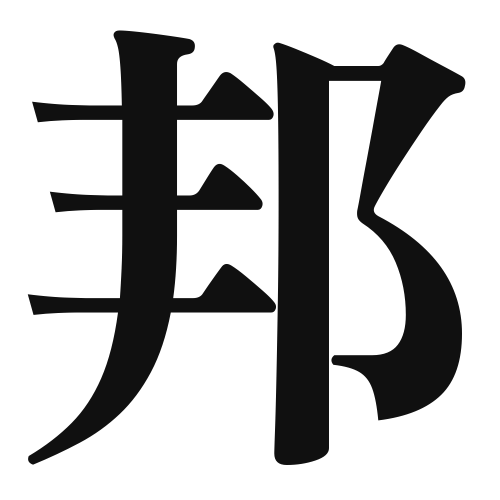1. Overview of Meaning
The kanji “邦” (pronounced “hō” or “bō”) generally means “country” or “nation.” It is often used to refer to one’s homeland or a specific nation in a broader context.
2. Formation and Radical
Formation of the Kanji: The kanji “邦” is a compound character that combines elements to convey its meaning. It consists of the radical for “country” (国) and the phonetic component “邦,” which helps indicate its pronunciation.
Radical: The radical for “邦” is 国 (kuni), which means “country” or “nation.” This radical is commonly found in other kanji related to geographical or political concepts.
3. Examples of Usage
Common Words and Phrases: Some frequently used words that include “邦” are:
- 邦楽 (hōgaku) – traditional Japanese music
- 邦人 (hōjin) – Japanese person
- 邦訳 (hōyaku) – translation into Japanese
Example Sentences in Daily Conversation:
- 私の邦は日本です。 (Watashi no bō wa Nihon desu.) – My country is Japan.
- 邦楽を聴くのが好きです。 (Hōgaku o kiku no ga suki desu.) – I like listening to traditional Japanese music.
4. Synonyms and Antonyms
Similar Kanji: A similar kanji is “国” (kuni), which also means “country” but is more general and can refer to any nation, while “邦” often implies a cultural or national identity.
Antonyms: An antonym for “邦” could be “外” (soto), meaning “outside” or “foreign,” which contrasts with the idea of one’s own country or homeland.
5. Cultural and Historical Background
Relation to Japanese Culture: The kanji “邦” is deeply rooted in Japanese culture, often used in contexts that emphasize national identity and heritage.
Proverbs and Idioms: One common idiom is “邦を思う” (bō o omou), which means “to think of one’s country,” reflecting a sense of patriotism and connection to one’s homeland.
